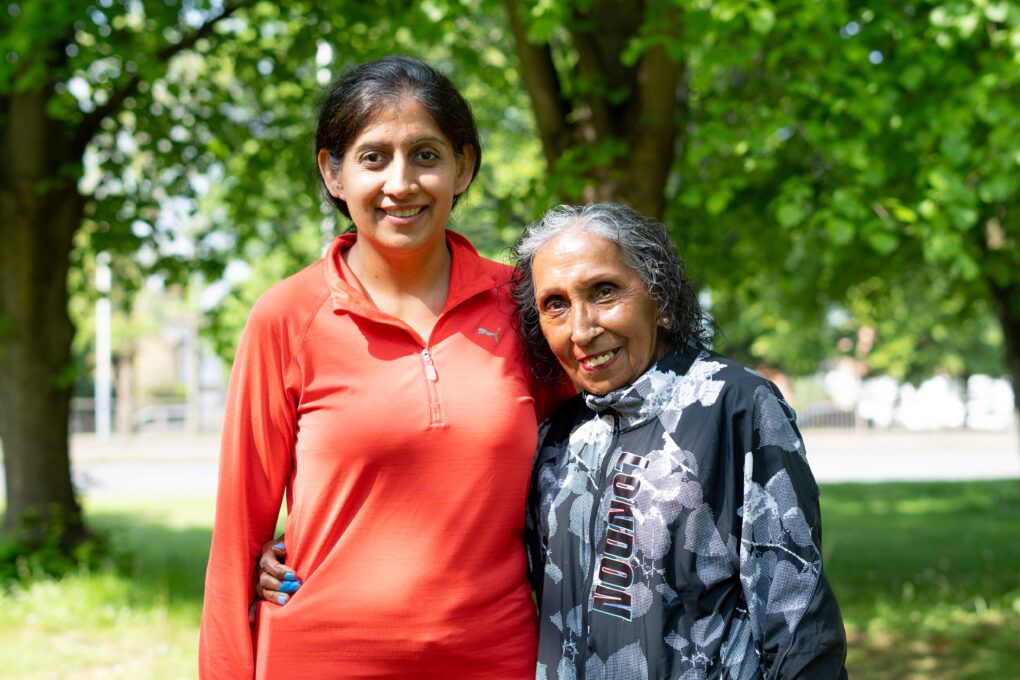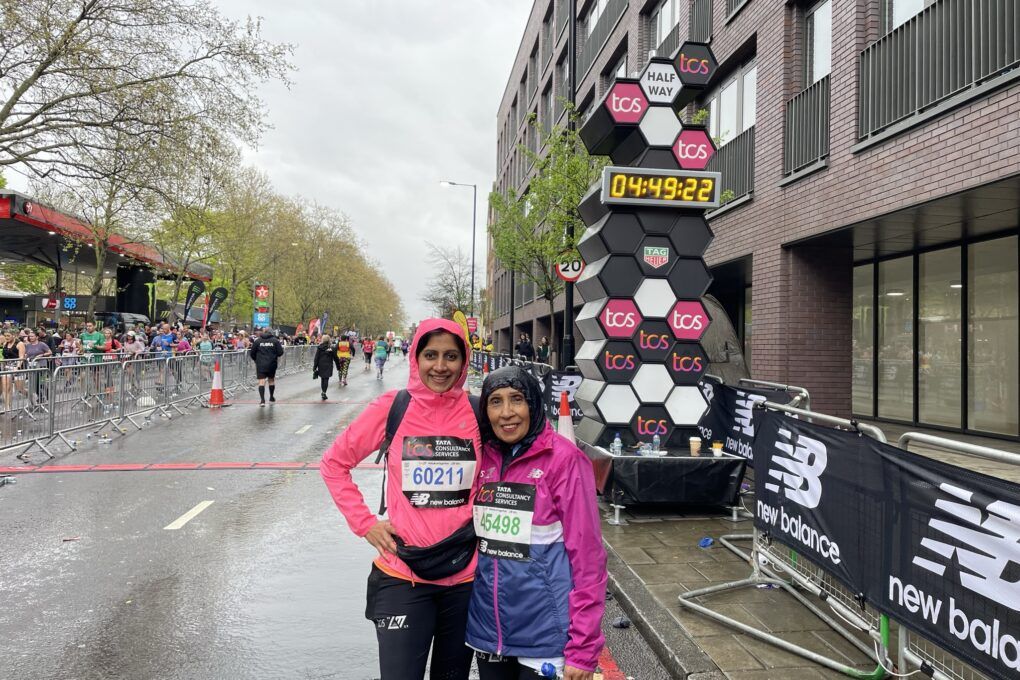‘My mum is stepping up because she doesn’t want others to suffer’

If anyone saw Mum and me going into the Uxbridge branch of Boots, they’d assume we were a mother and daughter out shopping. We’d booked in to have Our Future Health appointments, one after the other, and so our good deed was over and done in 45 minutes. In the appointment, Mum found out that her blood pressure was too high, which was very useful to know. She was advised to get it measured again with a pharmacist.
But there’s so much more to the story. The reason we both decided to support Our Future Health is because Mum has a type of blood cancer, called myeloma. It can’t be cured – she’ll have it for life. Mum wants to make sure that future myeloma care is as effective as it can be for anyone who’s diagnosed in the future. Our Future Health is going to be an incredible resource of data about real people for researchers to use to help detect and treat cancers of all kinds, including myeloma.
Overcoming the stigma of cancer
The other reason we volunteered is because Mum has decided to speak out about her cancer. In some parts of the South Asian community, there’s a lot of old-fashioned superstition about cancer being contagious. That’s why our first instinct was to keep the news in the family, even though we know cancer isn’t catching. Dad said he was nervous about visiting people, because he was worried about how they would feel.
Mum is speaking out to help get rid of both the superstition and the stigma. And because, at times, not being able to share how she feels or to see some people has left her feeling isolated. She wants to help stop others from feeling alone too.
Some people in our community stay silent about cancer symptoms until it’s too late. Being polite about cancer is bad for everyone. By telling people about her symptoms, Mum hopes she may even help someone else to get an earlier diagnosis.
Taking on the marathon in her 70s
Looking back, we first got a clue that Mum was ill ten months ago, while running the London Marathon together. I’d been a keen runner for three years and had run two marathons with Dad but this was Mum’s first one, at the age of 72. She’s always had it on her bucket list.

Mum was so fit, she used to go into schools to give hula-hoop workshops for self-esteem and fitness. She was in her 70s when she learnt to ride a bike and went open water swimming every week. In the lead up to the race, we went running and walking and did weights together.
On the day, it all went to plan until we reached the mile 17 marker, on the Isle of Dogs in East London, when Mum got severe leg cramps. A St Johns Ambulance medic took care of her but even though she tried to carry on, she was forced to stop. She told me I had to keep going. For those last eight miles, I felt alone and upset thinking how much it would have meant to Mum to finish. As I got closer to the finish line, I met Dad, who’d been waiting for me, and we crossed it together. We told each other we were doing it for Mum.
Mum seemed to recover but then, a month later, she started to feel breathless and tired. Every time she moved, a pain shot through her ribs. She couldn’t even take a full breath. She said her bones in her ribs and legs felt as if they were about to break. Mum’s symptoms were typical of myeloma, but it took five months for her to get tested for myeloma, and finally get a diagnosis. That’s because not only is myeloma very rare – only 6000 people in the UK have it – but the typical person who gets the disease is black, male and over the age of 70.
On the road to recovery
Mum had six gruelling months of weekly chemotherapy, then it went down to every two weeks. On top of the illness, the treatment made Mum even weaker, breathless, with pains in her back and no appetite. It was hard and sad to see Mum, who was so strong, become so fragile. At one point, she had to use a stick to walk. At night, I’d have to help her up the stairs to the bathroom.
Being diagnosed so late has left mum with lesions in her bones. She has a curved spine and she’s lost three inches from her height. The sad truth is, if Mum had been diagnosed earlier, the treatment wouldn’t have been as hard, and the cancer wouldn’t have done as much damage. And it only takes a simple blood test to detect the disease.
Mum will continue with monthly chemotherapy, for the foreseeable future. She’s one of the first to have this treatment regime and the cancer has responded well, although she’d rather not have any medication, of course.

I’m now Mum’s solo full-time carer. I have to stay strong for her, so I’ve never let her see me cry. Though Mum’s life will never be the same, she’s still the positive person she’s always been. Volunteering and speaking out has become her purpose. Helping other people is a big part of Sikh values. Mum is hoping she’ll inspire people from our community to follow her lead and join Our Future Health, so they’ll be represented in new healthcare discoveries too. Volunteering is a way of helping everyone you know.
My priority is now to help Mum get healthier. This year, I ran the London marathon again – this time to raise awareness of blood cancer. Mum is determined to go back to work, to live as close to a normal life as she can. In fact, her dream is to finish a marathon alongside Dad and me, and so she’s working at building her fitness slowly. Whether we reach the finish line or not, we’ll do it as a family.

Let’s prevent disease together
By volunteering for Our Future Health, you can help health researchers discover new ways to prevent, detect and treat common conditions such as diabetes, cancer, heart disease, stroke and Alzheimer’s.